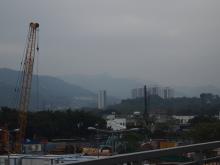BP marker stones
Primary tabs
Several readers have reported seeing marker stones with "BP" and a number on them.
We're curious to know what they were used for. One suggestion is that BP stands for Boundary Post, though it isn't clear what boundary they refer to.
For more information about and and photos of a stone, either click its name in the list, or click its marker on the map. Your are welcome to add another stone - just remember to give it the tag BP marker stone so that it shows up on the list and map below.
The map below is 'live': you can drag it around with your mouse, click the +/- buttons to zoom in and out, and click the Map/ Satellite/ Hybrid buttons to change the appearance of the map.


Some examples of what they look like
BP Stones
Originally thought the 'BP' stone markers may have had something to do with the survey and mapping of the countryside. Not anymore now after viewing the photo below showing the 'WD' (War Department) markings on BP 11, which indicate that the stones were related to the British Military and erected probably pre-WWII. Defense positions? From the stones that have been marked on the map, the numberings on the stones do not appear to indicate a sequence pattern. It would be interesting to find out the purpose and reason for their location.
I suspect 'BP' stood for
I suspect 'BP' stood for 'Boundary Post' and were laid down by the Royal Engineers of the British Army (hence the War Department was involved) to demarcate areas of lands in the early 20th century (once New Territories were ceded to Britain in 1899) and maybe earlier on HK island. I suspect some BP stones may have been laid by non-military private contractors following tendering by the HK government as well.
There is a difference in 'delineation' and 'demarcation'. The former is the theoretical marking down on paper of a boundary (even on a well drawn topographical map) and the latter term is referring to going to the actual ground and marking it physically so there is no dispute. Fundamentally, "a boundary should not be defined on the basis of descriptions compiled on maps" ('Mapping in Support of Frontier Arbritration: Boundary Definition; Boundary Disclaimer Notes; Toponymy by Dennis Rushworth p62 IRBU Boundary and Security Bulletin Spring 1999)
The question everyone asking is why and to what purpose for the BP stones in HK. I don't know at this point - was it for administative purposes? military? land sales? combination? It might still be for surveying and mapping the countryside in prepration for a future function(s) that was yet to be defined.
To be looked into...
Difference in color of tags
What's the difference between those blue and green tags on the map?
Marker Stone BP21
BP21 appears to be on the spur location of a Chinese battery used to bombard the Tai Po police Staion matsheds during the Six Day War of 1899 thus it could designate "Battery Position"?
They are all in strategic locations on hills so other possibilities are "Bounday" or "Border" Post?
Won't show location on map added last night
Already done this last night, it appeared on my map ok. Yet it still won't show on the one with all others' locations.
https://gwulo.com/node/48722
What steps should I take in order to add it in the map in this page?
Location map
Dear H Lo
You should add the tag "BP marker stone" then you location of BP33 will be showing on the map
re: Difference in color of tags
The colour of the marker depends on the value set for "Current condition" on that Place.
For these BP Places I recommend setting the value to "Ruin", which will show a yellow marker.
Some thoughts
Hello, everyone. I have browsed this site for years. I like hiking and am interested in military heritage and historic monuments in HK.
Regarding the BP stones, I remember this forum (https://www.discuss.com.hk/viewthread.php?tid=24183851&extra=page%3D1&page=1) has discovered several similar markers. It is a site created by senior and highly-experienced hikers to look for and record trigonometric stations in HK. They suspect that these stones are military markers and, to a certain extent, associated with the trigonometric stations. The most prominant examples are BP16 & BP19, which are suspected to be former and obsoleted trigonometric stations. Another expert, Thetrigoman, once mentioned that the marker refer to "PillarBox" boundary stone when he discovered BP1 marker near #7024.04 in 大砍篤.
Looking forward to more latest inormation. Thanks.